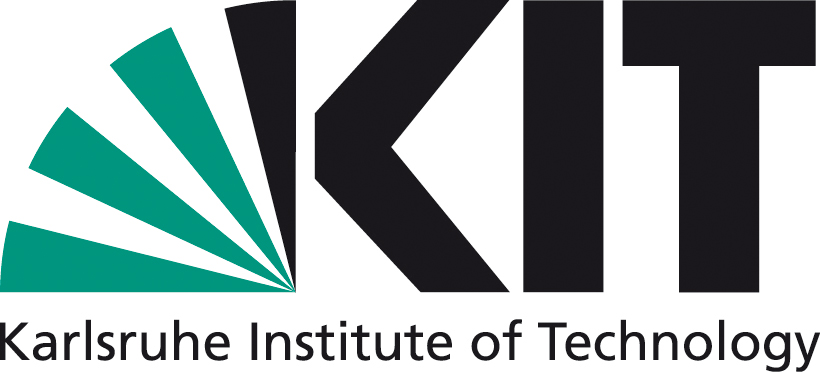Employee-friendly implementation of AI systems in terms of acceptance and trust
Development of a research model based on a qualitative analysis
DOI:
https://doi.org/10.14512/tatup.30.3.37Keywords:
employee-friendly AI, AI acceptance, AI trust processAbstract
The use of artificial intelligence (AI) in manufacturing companies offers opportunities and potentials. In addition to the competitiveness of companies, AI can also promote self-determination by employees. Currently, too little attention is often paid to the importance of employees for effective and efficient use of AI systems as the focus is predominantly on the technology. Therefore, a qualitative study was conducted to analyze the two factors “employee-friendly implementation” and “employee-friendly operation” in terms of acceptance and trust of AI systems. From the findings, a process-oriented research model was developed based on Rogers’ adoption theory and including influences from different technology acceptance models as well as factors promoting acceptance and trust. The results show that perceived ease of work and sense of achievement can contribute to increased acceptance of action.
References
Apt, Wenke; Priesack, Kai (2019): KI und Arbeit. Chance und Risiko zugleich. In: Volker Wittpahl (Hg.): Künstliche Intelligenz. Technologie, Anwendung, Gesellschaft. Berlin: Springer Vieweg, S. 221–238.
Backhaus, Nils (2017): Nutzervertrauen und -erleben im Kontext technischer Systeme. Empirische Untersuchungen am Beispiel von Webseiten und Cloudspeicherdiensten. Dissertation, Technische Universität Berlin. Online verfügbar unter https://d-nb.info/1156183804/34, zuletzt geprüft am 13. 10. 2021.
BMWi – Bundesministerium für Wirtschaft und Energie (Hg.) (2019): Technologieszenario „Künstliche Intelligenz in der Industrie 4.0“. Working Paper. Berlin: Plattform Industrie 4.0. Online verfügbar unter https://www.plattform-i40.de/IP/Redaktion/DE/Downloads/Publikation/KI-industrie-40.pdf?__blob=publicationFile&v=10, zuletzt geprüft am 13. 10. 2021.
Bundesregierung (2018): Strategie Künstliche Intelligenz der Bundesregierung. O. O.: o. V. Online verfügbar unter https://www.bmwi.de/Redaktion/DE/Publikationen/Technologie/strategie-kuenstliche-intelligenz-der-bundesregierung.pdf?__blob=publicationFile&v=10, zuletzt geprüft am 13. 10. 2021.
Davis, Fred (1989): Perceived usefulness, perceived ease of use and user acceptance of information technology. In: MIS Quarterly 13 (3), S. 319–340.
Diekhöner, Philipp Kristian (2018): The trust economy. Wiesbaden: Springer.
Gefen, David; Karahanna, Elen; Straub, Detmar (2003): Trust and TAM in online shopping. An integrated model. In: MIS Quarterly 27 (1), S. 51–90.
Ilmarinen, Juhani; Tempel, Jürgen (2002): Arbeitsfähigkeit 2010. Was können wir tun, damit Sie gesund bleiben? Hamburg: VSA.
Kollmann, Tobias (1998): Akzeptanz innovativer Nutzungsgüter und -systeme. Konsequenzen für die Einführung von Telekommunikations- und Multimediasystemen. Wiesbaden: Springer Gabler.
Norman, Donald; Miller, Jim; Henderson, Austin (1995): What you see, some of what’s in the future, and how we go about doing it. HI at Apple computer. In: Conference Companion on Human Factors in Computing Systems. New York: Association for Computing Machinery, S. 155.
Oswald, Margit (2011): Vertrauen in Organisationen. In: Martin Schweer (Hg.): Vertrauensforschung. State of the art. Frankfurt am Main: Peter Lang, S. 63–85.
Pavlou, Paul (2003): Consumer acceptance of electronic commerce. Integrating trust and risk with the technology acceptance model. In: International Journal of Electronic Commerce 7 (3), S. 101–134.
Rammer, Christian; Bertscheck, Irene; Schuck, Bettina; Demary, Vera; Goecke, Henry (2020): Einsatz von Künstlicher Intelligenz in der Deutschen Wirtschaft. Stand der KI-Nutzung im Jahr 2019. Berlin: Bundesministerium für Wirtschaft und Energie.
Rogers, Everett (1983): Diffusion of Innovations. New York, NY: The Free Press.
Stowasser, Sascha et al. (2020): Einführung von KI-Systemen in Unternehmen. Gestaltungsansätze für das Change-Management (Whitepaper). München: Lernende Systeme – Die Plattform für Künstliche Intelligenz.
Venkatesh, Viswanath; Bala, Hillol (2008): Technology acceptance model 3 and a research agenda on interventions. In: Decision Sciences 39 (2), S. 273–315.
Venkatesh, Viswanath; Davis, Fred (2000): A theoretical extension of the technology acceptance model. Four longitudinal field studies. In: Management Science 46 (2), S. 186–204.
Downloads
Published
How to Cite
Issue
Section
License
Copyright (c) 2021 Maria Jung, Jörg von Garrel

This work is licensed under a Creative Commons Attribution 4.0 International License.
Funding data
-
Bundesministerium für Bildung und Forschung
Grant numbers 02L19C157








